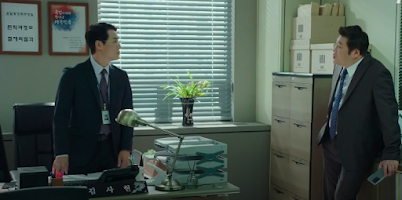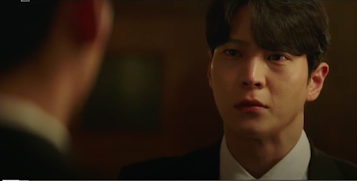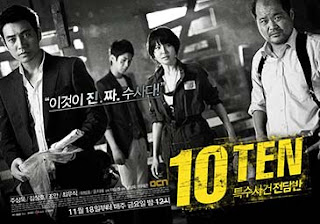The drama's done and for the most part, it was entertaining. The ending wasn't too bad for a C drama and they left some room for another iteration if they can scratch around for the cash I expect. To be honest, I went into it not expecting a lot but found the big story surprisingly involving -- the mystery of the King of the South Sea and Thunder City. As I've said previously, I started this for Zhu Yilong, who can be relied upon to give a nuanced performance and he certainly delivered in spades. But the actual mix of sci-fi and mythology after the template of Stargate was what held my interest from start to finish. Sure some of the gobbledegook went over my head but I was able to make peace with that as the show progressed bit by bit, and the layers to this gigantic onion were peeled back. Jargon that had any long-term importance tended to be repeated so that even an ageing ahjumma like myself could take all the disparate pieces of the puzzle and make some sense of it.
Despite all the issues I may have had with the first season, part 2 was probably streets ahead in terms of pacing. Undoubtedly having to trim the show down to a smaller number of episodes helped plenty. I'm not a fan of long dramas because 95% of the time, the length's not warranted. I don't care how much eye candy there is or if they dexterously pull out all the stops on the romance department, because once there is no reason for a story to continue, it shouldn't. As a principle I take a hard line on this. A good storyteller should always know when to bring things to a close. Besides, there's no reason why viewers can't go back and rewatch all their favourite scenes with all the technological advances available to us.
The set-up of the drama does resemble an RPG particularly in matters related to the mysterious Warehouse 11, navigating through increasing levels of difficulties and overcoming different tiers of villainy. The show isn't particularly innovative in that regard. But what it does do well is incorporate a sense of foreboding with world building and the mythology driving it. This is achieved through the inclusion of long stretches of dark corridors/tunnels, creepy crawlies leaping from nowhere, fog-like smokey interiors, dark dusty set pieces and sudden attacks from unknown assailants (a well-used but effective horror technique).
The women in the show were a mixed bag in part one. Yeah I've ranted about that in another post and there's no need to rehash all that. In Part 2 it's fortunately just Bai Haotian (Rachel Mao) aka Xiao Bai who was always much better written considering her position in that world. It's not a big secret that I was rooting for her and Wu Xie but it was never a deal breaker if nothing resulted on that front. Romance while it has its place even in something like this, was never the show's great strength especially with how the more significant women were written. They seemed more to be encumbrances or potential dangers for men who made their bread and butter living on the edge. In this context there's no room for the risk averse or a lack of teamwork. Xiao Bai, despite the age gap was developed more in line with Wu Xie's talents and personality. The UST was always there even if he tried to maintain some distance because his own future was uncertain. But much more importantly Xiao Bai was a good fit with the Iron Triangle and Co. and as the show progressed, she became part of the team and pulled her own weight where she could. She wasn't a damsel in distress. She wasn't a possible love interest. Her skill set and her maturity made her an integral part of the team winning even the respect of the cynical Pangzi/Fatty. She became one of the boys as we see at the drinking bash at the end, never getting in the way of Wu Xie's relationship with his accumulated company of adventurers.
The show is really a delightful old-fashioned treasure hunt romp that unabashedly celebrates male camaraderie. I don't know if a show like this could be made in the English speaking world in this day and age under the current political climate. Wu Xie was someone who commanded loyalty because he modelled it. The show practically sledgehammers home the point. His intelligence ensured that they could get out of scrapes when they had their backs up against the wall but his righteous ardour and "leave no one behind" ethos is why they kept going back to him like moths to a flame... like gluttons for punishment.
In concert with everything else that goes on in the big storyline, this show is a parable about obsession or being narrowly focused on one thing to the rejection or neglect of all else. Third uncle who wasn't interested in wealth especially sought to know the mystery of Thunder City but when he got there, he experienced nothing but disillusionment. He had failed to see what he had and lost far more to attain the knowledge that he sought. Treasure hunters of all description seek treasure at the risk of their own lives but they miss the big lessons or great gifts they find along the way: friendship, loyalty, teamwork, love, trust... the kind of things that all the material wealth in the world can't buy.
It's an old old story told afresh. Perhaps it can never be an old story because greed is never old. The timeless biblical adage that the love of money is the root of all evil is writ large here. Many will no doubt nod sagely in agreement as history is littered with such tales. But the single-minded pursuit of wealth is merely the most conspicuous manifestation of greed which finds its expression in far more subtle ways than is often realised.








































